Publications
Articles, publications, books, tools and multimedia features from the U.S. Institute of Peace provide the latest news, analysis, research findings, practitioner guides and reports, all related to the conflict zones and issues that are at the center of the Institute’s work to prevent and reduce violent conflict.
Question And Answer
Whither NATO at 75?

The Growing Flashpoints Between the U.S. and Iran
Tension between Washington and Tehran has been a growing undercurrent of the war in Gaza, even as both countries tried to prevent it from sparking a direct confrontation during the first six months of fighting. Robin Wright, a joint fellow at USIP and the Wilson Center, explores the evolving flashpoints in the world’s most volatile region as well as the challenges for U.S. diplomacy, the new triggers for a wider regional conflagration and the historical backdrop.

As Hezbollah-Israel Tensions Simmer, Lebanon’s Domestic Crises Drag On
Nearly six months after Hamas’s October 7 attack on Israel, tensions in two key flashpoints — Lebanon and Syria — continue to rise with significant Israeli airstrikes in both countries, leading to the highest death tolls in each country since October 7. Amid these rising tensions, ongoing clashes between the Lebanese militant group Hezbollah and the Israel Defense Forces (IDF) threaten to escalate into a wider war. At the same time, Lebanon continues to reel from a series of crises that have unfolded over the past four and a half years, highlighting Lebanon’s perilous position as the Gaza conflict continues to reverberate throughout the region.
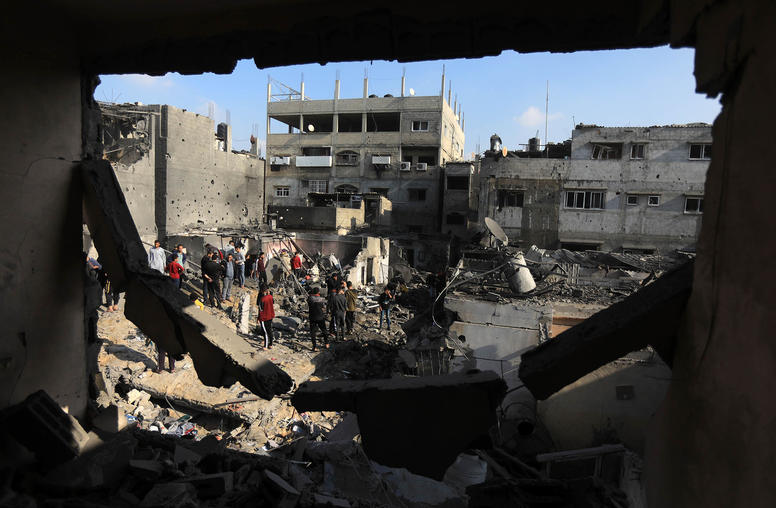
What Does the U.N. Cease-Fire Resolution Mean for the Israel-Gaza War?
On March 25, the United Nations Security Council (UNSC) passed Resolution 2728, calling for an “immediate” cease-fire in Gaza. The motion’s passage came after weeks of back and forth and posturing among the UNSC’s permanent and rotating members. The exact phrasing of the resolution and its relevance to the situation on the ground, as well as bilateral and multilateral relations — particularly U.S.-Israel ties — have been the subject of heavy public and media attention since Monday, raising questions about the resolution’s subtext, intent and limitations. USIP’s Robert Barron looks at these questions.
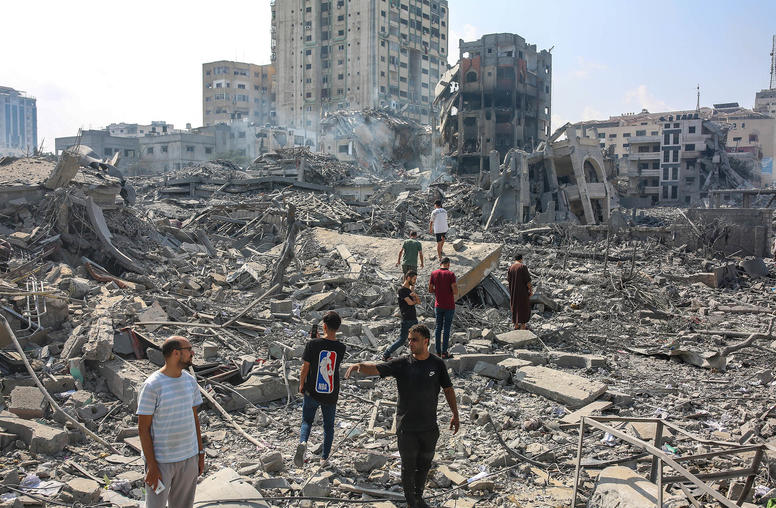
Plan for Gaza’s Future Highlights the Challenges That Lie Ahead
The document that Israeli Prime Minister Benjamin Netanyahu presented to his security cabinet for discussion on February 22 may be his first formal articulation of a postwar plan for Gaza, but is largely a compilation of views that have been expressed publicly over the past few months. Accordingly, it offers few surprises, but could deepen tensions between Israel on one side and the United States and regional stakeholders on the other.
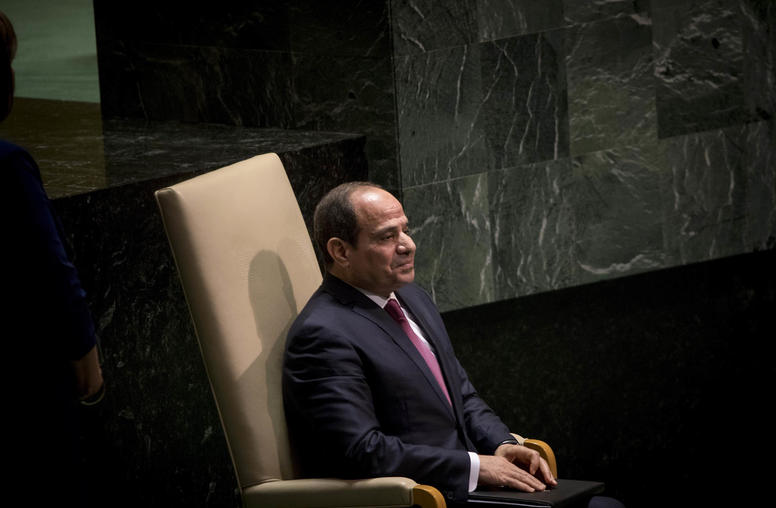
Six Dilemmas Facing Egypt
Since Hamas took control of Gaza in 2007, Egypt has been heavily involved in efforts to end the military confrontations and wars that have periodically broken out in Gaza. However, the scope, scale and stakes of the current war is unlike any prior round of hostilities. In response to the massacre and hostage-taking of mostly Israeli civilians by Hamas and other militant armed groups during their devastating attack on Israel on October 7, 2023, Israel has launched one of the most destructive wars in its history. Indeed, this war will be transformational in numerous ways, with ramifications for several stakeholders beyond the parties themselves.
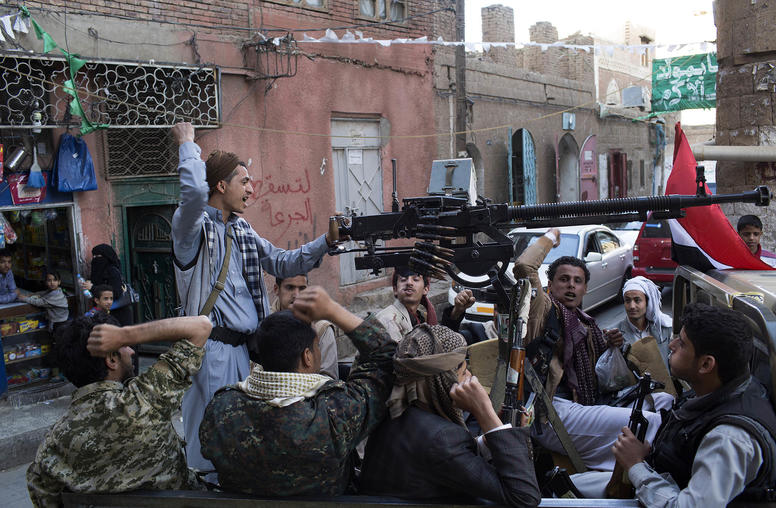
A Slippery Slope? U.S., U.K. Launch Strikes on Iran-Backed Houthis in Yemen
On January 12, the United States and the United Kingdom, supported by Australia, Bahrain, Canada and the Netherlands, launched military strikes against Houthi targets in Yemen in response to the group’s attacks on civilian and military ships in the Red Sea. The U.S.-led strikes are a significant escalation and part of the growing regional impact of the Israel-Hamas war, which the United States has been actively trying to prevent from turning into a regional war.

Is the Middle East on the Verge of a Wider War?
Three months after the Hamas terror attack on Israel, reverberations from the ensuing conflict in Gaza threaten to engulf the region in a wider war.
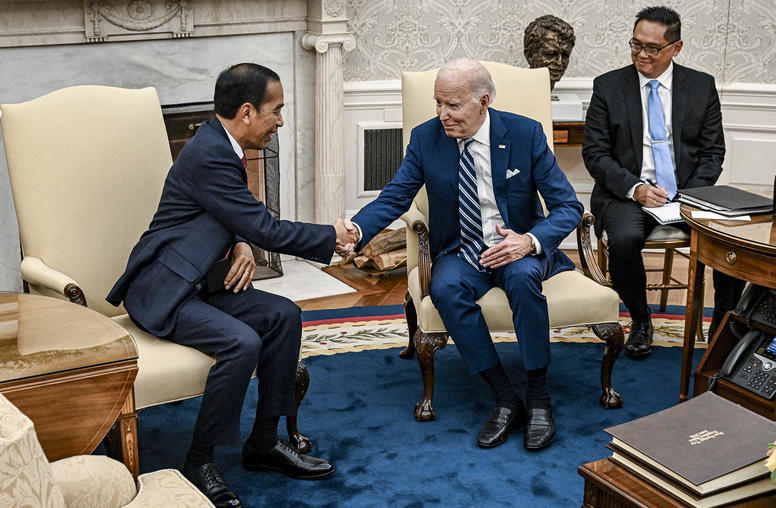
Indonesia and the U.S. Strengthen Ties under Cloud of Gaza War
U.S. President Joe Biden and Indonesian President Joko Widodo announced a new comprehensive strategic partnership when the two leaders met at the White House on November 13. The Indonesian leader, popularly known as Jokowi, said he hoped the partnership will “contribute to regional and global peace and prosperity.” The White House meeting took place ahead of Biden’s highly anticipated meeting with Chinese President Xi Jinping on the sidelines of the Asia-Pacific Economic Cooperation summit in San Francisco on November 15. However, Jokowi’s call for the United States to do more to end the war in the Gaza Strip dominated the headlines coming out of the meeting.

La guerra entre Israel y Hamas divide a América Latina a través de líneas partidistas
A medida que aumentan las bajas civiles en el conflicto entre Israel y Hamás, muchos líderes latinoamericanos están intensificando sus críticas al gobierno israelí. Bolivia recientemente se convirtió en el primer país en romper relaciones con Israel; Chile, Colombia y Honduras llamaron a sus embajadores para consultas; y diplomáticos de Argentina, Brasil y México han condenado a Israel por su violencia, exigiendo un cese inmediato de las hostilidades.

Israel-Hamas War Divides Latin America Along Partisan Lines
As casualties mount in the Israel-Hamas conflict, many Latin American leaders are intensifying their criticism of the Israeli government. Bolivia recently became the first country to sever ties with Israel; Chile, Colombia and Honduras recalled their ambassadors for consultations; and diplomats from Argentina, Brazil and Mexico have blasted Israel for the bloodshed, calling for an immediate end to hostilities.